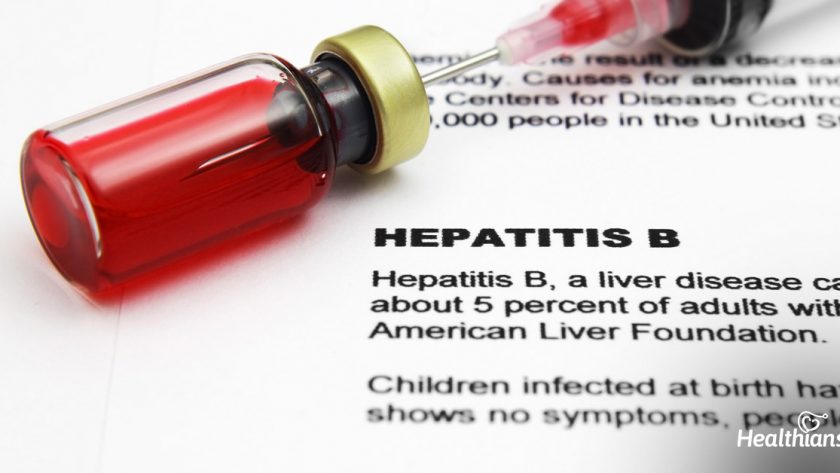[ad_1]
Contributed by: Priyaish Srivastava
What is Hepatitis B
Hepatitis B is an acute and/or chronic condition in which the hepatitis B virus (HBV) attacks the liver. The virus can enter your body through bodily fluids or blood transfusion from an infected person or object and harm the liver causing potentially life-threatening diseases like liver cirrhosis.
The infection can become chronic and turn fatal in a newborn who gets it from his mother and can be prevented only by vaccination if done within 24 hours of birth. A second vaccination after one month of the first jab, and a third after 6 months of the second jab. If a previously vaccinated adult gets infected with hepatitis B, the condition may be acute and not prolong because of the strong immunity, due to the vaccination at the time of birth.
A survey conducted by the World Health Organisation (WHO) shows that every year there are more than 6,86,000 global and approximately 1,15,000 Indian deaths due to the Hep B infection.
If you or someone you know is infected with hepatitis B, the first thing to remember is that although hepatitis B is an incurable infection, it can be 100% prevented through vaccines and managed with lifestyle changes, regular screenings, and prescription medications.
As you continue to read this article, you will learn about the causes, symptoms, diagnosis, and management of Hep B.
How is hepatitis B contracted?
Hepatitis B virus is the cause of Hep B infection. But, the question is that how does this virus enter your body? The transmission of HBV can take place due to the following factors:
Mother to child:
Any woman can become infected with the Hep B virus for many reasons, such as unprotected sex, infected needle use, shared nail clippers, and other common personal essentials, or if she is a healthcare professional exposed to a variety of Hepatitis B vectors (blood samples, sample collection kits, etc.). If infected, the mother will then transmit the HBV to the developing fetus during pregnancy, and the child will carry the virus at birth. However, babies can be protected by administering a vaccine against a Hep B virus.
Unprotected sex
Unprotected sex leads to the transmission of the HBV virus is a sexually transmitted disease via the exchange of bodily fluids like semen, vaginal fluids, saliva from an infected person to a non-infected one.
Sharing of personal essentials
Your essentials like toothbrushes, combs, or nail clippers are prone to be infected if shared with others. Therefore, if you share these essentials with an infected person, there are high chances that you’ll get infected with HBV.
Needle sharing
If a needle has ever been used by or on an infected person that is not disposed of properly or is used multiple times, it becomes a prominent source of Hep B virus transmission.
Clinical exposure
Clinical exposure is also one of the most common causes of Hep B virus transmission. If you are a medical practitioner who might be exposed to non-sterile Hep B lab equipment, improperly stored blood samples, or are treating patients without adequate safety measures, then there are chances that you may get infected by the virus.
Symptoms of hepatitis B
- Jaundice
- Dark urine
- Repeated episodes of fever
- Continuous exhaustion
- Nausea and vomiting
- Pale colored stool
- Stomach ache
You may remain asymptomatic for the first 6 months of being infected but still be able to transmit the infection. The condition can only be identified with an early diagnosis.
Diagnosis of hepatitis B
The symptoms of hepatitis B are similar to that of other liver ailments. So differentiating and identifying the infection without diagnosis is impossible. Your doctor can ask you for the hepatitis B panel blood test or liver biopsy to ascertain the type and severity of the Hep B infection.
Hepatitis B blood panel
- HBsAg (Hepatitis B surface antigen): A positive or reactive HBsAg indicates that you are infected with hepatitis B and are a potential carrier of the virus. If positive, further testing is required to identify whether it is an acute or chronic infection to initiate the treatment.
- Anti-HBs or HBsAb (Hepatitis B surface antibody): A positive or reactive HBsAb indicates that you are not infected with the Hep B virus and have developed an immunity against the virus. This protection may be because you were infected in the past and cured or have been vaccinated at birth.
- Anti-HBc or HBcAb (Hepatitis B core antibody): A positive or reactive HBcAb indicates that you are infected and need medical attention. The result of this test can be examined after the observation of the results of the previous two tests.
- Liver biopsy: It is a surgical diagnostic procedure in which a small part of your liver is surgically removed for examination to confirm or negate the presence of the HBV virus.
Managing hepatitis B
- Acute hepatitis B management: There is no specific treatment for acute Hep B. However, the condition can be prevented by undertaking lifestyle changes like regular exercises and a nutritional diet. You should not take any medicine for controlling the symptoms without consulting with a specialist.
- Chronic hepatitis B management: Chronic hepatitis can be managed by regular medical observation, prescribed medication, and lifestyle changes. The medicines for chronic hepatitis B also help in controlling fatal liver complications like liver cirrhosis and liver cancer.
Preventive Vaccination:
Hepatitis B vaccination is like an armor that can protect you for life. According to the World Health Organization (WHO), a vaccinated infant cannot be infected with the hepatitis B virus for at least 20 years, and the effects of the vaccine can last a lifetime.
Get Tested For Hepatitis B Today!
This post has already been read 4 times!
[ad_2]
Source link



